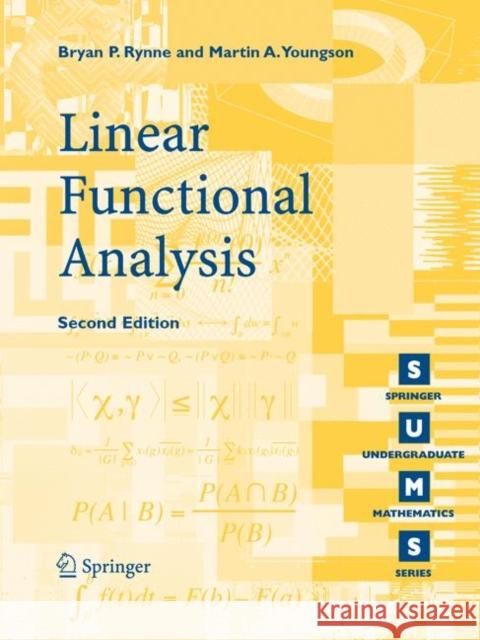Linear Functional Analysis » książka
Linear Functional Analysis
ISBN-13: 9781848000049 / Angielski / Miękka / 2007 / 324 str.
This book provides an introduction to the ideas and methods of linear fu- tional analysis at a level appropriate to the ?nal year of an undergraduate course at a British university. The prerequisites for reading it are a standard undergraduate knowledge of linear algebra and real analysis (including the t- ory of metric spaces). Part of the development of functional analysis can be traced to attempts to ?nd a suitable framework in which to discuss di?erential and integral equations. Often, the appropriate setting turned out to be a vector space of real or complex-valued functions de?ned on some set. In general, such a v- tor space is in?nite-dimensional. This leads to di?culties in that, although many of the elementary properties of ?nite-dimensional vector spaces hold in in?nite-dimensional vector spaces, many others do not. For example, in general in?nite-dimensionalvectorspacesthereisnoframeworkinwhichtomakesense of analytic concepts such as convergence and continuity. Nevertheless, on the spaces of most interest to us there is often a norm (which extends the idea of the length of a vector to a somewhat more abstract setting). Since a norm on a vector space gives rise to a metric on the space, it is now possible to do analysis in the space. As real or complex-valued functions are often called functionals, the term functional analysis came to be used for this topic. We now brie?y outline the contents of the book.











